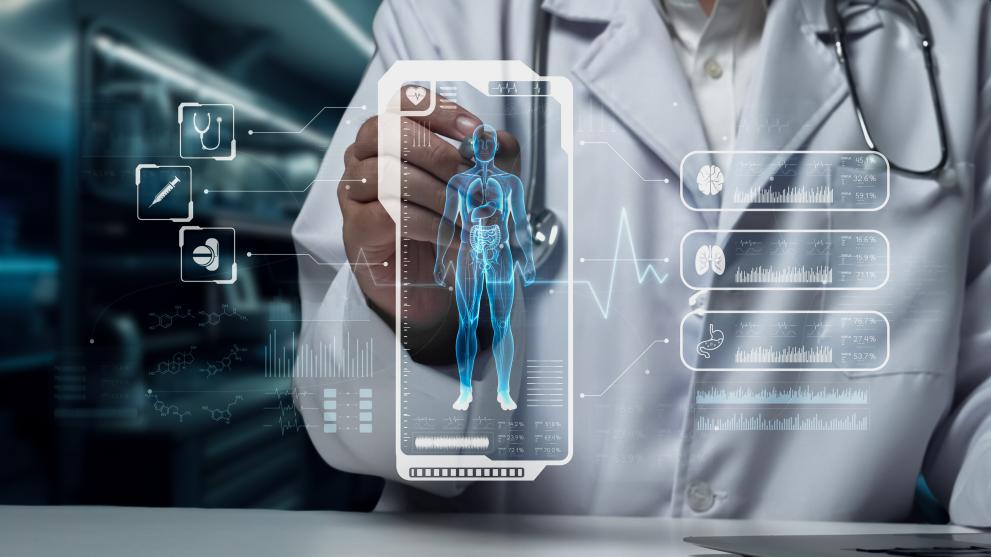
MICROCARD-2
The MICROCARD-2 Centre of Excellence (CoE) specializes in “numerical modeling of cardiac electrophysiology at the cellular scale”. It seeks to build on the results of the former EuroHPC JU-funded project MICROCARD and find solutions to help patients with heart rhythm disorders.
By bringing together computer scientists, mathematicians and biomedical engineers, a major goal of MICROCARD-2 is to enable highly accurate simulations of how the human heart’s electrical system works. To achieve this, the team will develop a powerful simulation platform that supports detailed studies of heart function, including creating “digital twins” or virtual models of heart tissue.
With the creation of "digital twins" of the heart tissue, researchers will be able to model and analyse heart function in a highly detailed way. The findings will allow for the development of more precise diagnostics tests and will help treat different conditions that may affect the heart.
MICROCARD-2 will also develop reusable HPC solutions that can be used by both scientists and medical professionals in many related medical fields.
Additionally, the project will enhance code generation to fully apply it to the next generation of supercomputing architectures designed for exascale performance. This will be essential for heart modeling, as simulating the heart’s electrical activity at a cellular level requires significant computational power and precision.
Led by the University of Bordeaux in France, MICROCARD-2’s consortium includes ten partners from Germany, France, Italy, and Norway, with an overall budget of €4,999,300. The CoE is funded with Horizon Europe funding and has a duration of 30 months from its start on 1 November 2024.
dealii-X
The dealii-X CoE will build “an Exascale Framework for Digital Twins of the Human Body," which will enhance computational modeling of vital organs, including the brain, lungs, heart, and liver, using advanced exascale supercomputers.
The goal of this project will be to enable the development of highly accurate digital models of human organs and capture complex biological processes with detailed precision. These real-time simulations will support the development of more precise diagnostics, tailored treatment planning, and advanced research into health conditions affecting these organs. The results of this research will help drug development and enable more adapted personalised medicine. By helping doctors and researchers customise medical interventions to individual patients, dealii-X aims to accelerate more targeted health outcomes.
The project will create a flexible computational framework for creating digital twins of various biological systems and model the complex processes in the human body. It will use the existing open-source dealii library which is a powerful toolkit for high-precision simulations.
The project brings together 16 research institutions and companies from Germany, Italy, France, and Belgium, dealii-X is coordinated by Ruhr Universität Bochum in Germany. The project started on 1 October 2024 and will have a duration of 27 months. It is funded under the Horizon Europe programme and has a budget of €3,939,780.
More Details
MICROCARD-2 and dealii-X have been selected following the HORIZON-EUROHPC-JU-2023-COE-03 call to support Centres of Excellence (CoEs) in HPC as they adapt to exascale and future computing architectures.
CoEs are research hubs focused on enhancing HPC applications that are adapted to fully exploit the power of supercomputers. These two projects will help optimise complex simulation models for the exascale era in their respective fields – namely human organs and biological systems.
Through collaboration with other EuroHPC CoEs and initiatives like CASTIEL 2, these projects will help will significantly contribute to solving critical medical challenges and advancing the future of healthcare using digital models for the human body.
Background
The EuroHPC Joint Undertaking (EuroHPC JU) is a legal and funding entity created in 2018 to enable the European Union and EuroHPC participating countries to coordinate their efforts and pool their resources with the objective of making Europe a world leader in supercomputing.
In order to equip Europe with a world-leading supercomputing infrastructure, the EuroHPC JU has already procured nine supercomputers, located across Europe. European scientists and users from the public sector and industry from across Europe can benefit from these EuroHPC supercomputers, which rank among the world’s most powerful.
In parallel, the EuroHPC JU is funding an ambitious research and innovation projects to develop a full European supercomputing supply chain: from processors and software to applications to be run on these supercomputers and know-how to develop strong European HPC expertise.
Details
- Publication date
- 27 November 2024
- Author
- European High-Performance Computing Joint Undertaking